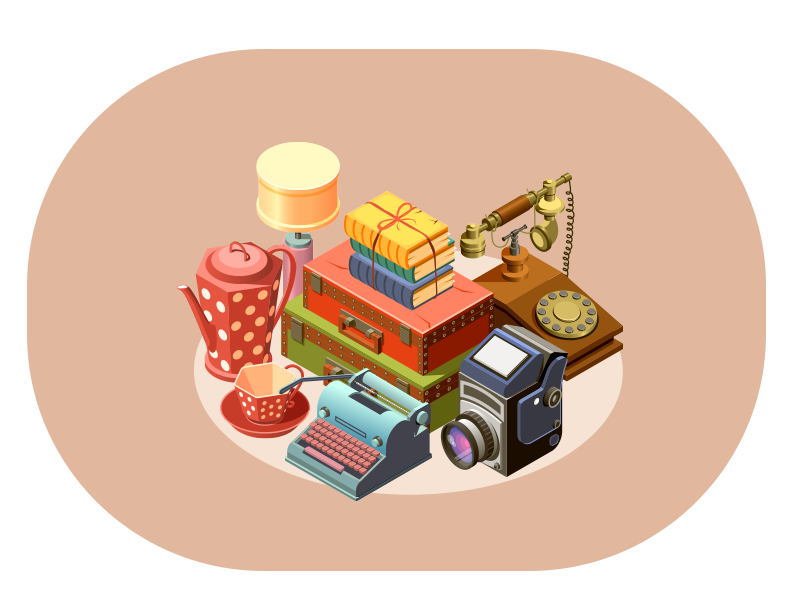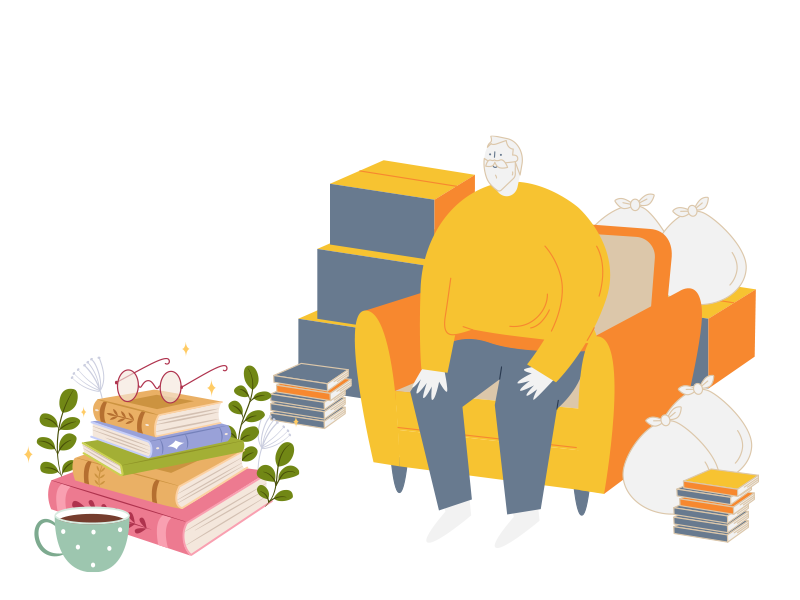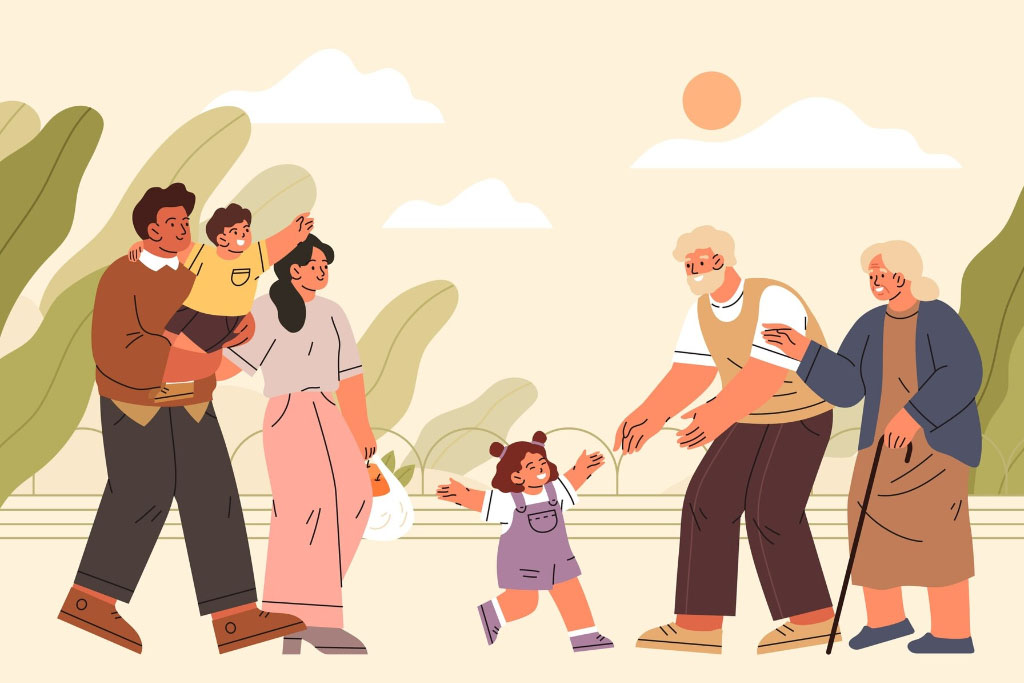Dementia and Hoarding

Beauty may be in the eye of the beholder, but as someone experienced with hoarding disorder, you know things aren’t that simple. Hoarding is compulsively collecting objects or animals without regard to beauty or any clear purpose.
Hoarding is a disabling mental health condition recognized by the American Psychiatric Association, classified with autism spectrum disorder and PTSD (post-traumatic stress disorder), and covered by the Americans with Disabilities Act. The condition is related to traumatic life events, particularly during childhood, genetics, and certain brain impairments.
People with the disorder also suffer extreme distress when forced to let go of their belongings. Hoarding disorder interferes with safety and everyday functioning. In its most advanced stage, residents’ homes are literally and legally unlivable due to permanent damage, pest infestation and mold, fire hazards, and more.
What about a person who has both dementia and a hoarding disorder?
What Is Dementia?
Dementia is not a disease but a symptom like a fever or an itch. It indicates nerve cell damage from an underlying condition. Whether reversible or permanent, dementia shows up as thinking difficulties relating to memory, language, understanding, problem-solving, decision-making, concentrating, emotional control, and reasoning. Conditions that can cause dementia include:
- Infections and immune system disorders
- Metabolic and endocrine disorders
- Nutrition and hydration imbalances
- Medication issues
- Damage from injuries, toxins, tumors, and abnormal pressure
- Progressive disorders such as Alzheimer’s, vascular (blood vessel) blockage, Huntington’s disease, Parkinson’s, and certain genetic conditions
Is Hoarding a Sign of Dementia?
You’ve heard the question about which came first, the chicken or the egg. Does dementia cause hoarding? Does hoarding cause dementia? The relationship between them is complex. For example, take the COVID-19 quarantine. People struggled to make sense of their changed lives. Do you believe that the abnormal situation created all the emotions or just triggered them? Our internal and external environments affect each other.
So, is hoarding a sign of dementia? It can be. Each person is unique. Whatever the answer, the situation demands attention. There’s no fast, easy cure, but professionals can help you cope.
What Dementia Feels Like
You had a taste of it when you went without sleep for too long or got hit with a sudden radical event. Instead of feeling like yourself, you experienced shock, confusion, fear, paralysis, agitation, frustration, depression, and more.
Sufferers of progressive dementia know what their future holds.
New behaviors that may arise during the early and middle stages of dementia are rummaging and hoarding. As memory becomes fragmented, people forget where they put things. They repeatedly search for items they’ve misplaced. Stashing and collecting offer comforting reminders of what’s been lost.
Caregivers often misunderstand many behaviors that make sense to someone with dementia. Why do dementia patients hide things? Dementia can spark panic from believing that someone is stealing. Seeing bare surfaces cleaned by well-meaning friends seems like proof. Former late-shift workers frequently stay up or try to go out at night because that was their reality. Many of your loved one’s actions are attempts to control their distress. Sadly, they may no longer remember people or significant events but continue to respond to the residue of emotions.
Living with a Person Who Has Dementia and Hoarding Disorder

When to Get Medical Help
Unexplained behavioral changes might indicate a physical health issue like constipation or urinary tract infection. People with dementia losing their communication skills often become irritable or withdrawn.
When you detect mental status changes, make an appointment with a trusted healthcare professional. The ideal healthcare provider listens to your input and treats you and your loved one with respect. Trained to recognize abnormal behaviors, he or she will ask questions, arrange testing, and explain what to expect. A psychological consultation is commonly recommended. Although medications and family counseling don’t cure mental health conditions, they help manage difficulties and make communication easier.
If you’re worried about your loved one’s behavior during the appointment, let the office know in advance. They might ask you to email them, bring a note, or meet privately with a staff member.
Safety First
When making changes, stress safety instead of messiness. Here is a checklist for unsafe situations that need immediate attention:
- Unusable toilet, sinks, and bed
- Disconnected utilities
- Blocked exits and pathways
- Flammable materials near heat sources and electrical outlets
- Fall/trip hazards
- Lack of food or rotting food and garbage
- Pest infestation
- Frayed or damaged electrical cords
- Sharp objects
- Poor ventilation
- Filthy laundry
- Disorganized medications
- Neglected pets
- Absence of or expired smoke alarms and CO2 detectors
11+ Years Experience dealing with Hoarding
Need someone to talk to that understands hoarding?
Get a Free Hoarding Clean-up Estimate.
Or call us today for immediate assistance.
How to Connect with Your Loved One
Caring, not Scaring
Anyone can get dementia, and the presence of another mental health condition like hoarding disorder magnifies the curse. Invading your loved one’s privacy to dump their belongings is terrifying. How do you feel when someone you love is impatient and disgusted with you?
The best thing you can do is offer comfort instead of confusion. You can’t fix the situation alone but you can make life less stressful. Here are suggestions to make communication and decluttering easier:
- Treat them with respect.
- Understand that their reality is different from yours.
- Make time for pleasant visits in person and by phone. Enjoy making new memories together.
- Create a scrapbook together of photographs of special items with notes about happy memories.
- Keep a record of what improves well-being and what triggers agitation. The brain controls sensory input, so avoid overstimulation from too much light, sound, motion, etc.
- Address their immediate emotion rather than outbursts. Use nonjudgmental responses like, “I know this is tough for you” or “Tell me more about how this feels for you.”
- Never argue. Channel the energy of anger in another direction.
- Negotiate instead of issuing ultimatums.
- As their language functions decline, speak more gently with simpler words and sentences. Use gestures and visual cues.
- Allow your loved one to arrange their space as they choose, keeping special belongings in view.
- Always include your loved one in the decluttering process.
- Integrate tidying and decluttering calmly into enjoyable shared activities.
- Take small, gentle steps instead of making sudden dramatic changes to their environment.
- Take advantage of coping strategies your loved one used in the past during difficult situations.
- Your loved one may be more willing to let go of belongings to be recycled or donated to help others. For example, give items to fundraisers for an animal shelter or children’s cancer center.
- Give your loved one a small box of items to sort. Let rummaging be fun.
- Feeling productive is a natural human trait, so let your loved one help you with appropriate jobs.
- When discarding items, be sure they’re permanently out of sight in case your loved one forgets their decision to let go.
- Choose your battles
Now Let’s Talk About You
You have to take care of yourself! You can’t effectively solve problems unless you maintain your own well-being. That means making time to communicate with supportive people and healthcare providers. Prioritize nutrition, hydration, sleep and rest, fresh air, natural light, and nature. Avoid sources of toxins and toxic people whenever possible.
Strategy Against Tragedy
Review this list daily:
- Keep duplicates of important documents, keys, glasses, etc.
- Lock up valuables.
- Self-care is not selfish.
- Learn to pause and breathe.
- Your loved one is aware of what’s happening, so be kind. You’re both frustrated.
- The goal is to create enjoyable moments with your loved one.
- As Mister Rogers’ mother said, “Look for the helpers.”
How We Can Help You

Clutter Trucker is a family-owned hauling business serving Denver, Colorado Springs, and the surrounding communities. We specialize in hoarding help. Other services include residential and commercial clean-outs, yard debris removal, and extreme cleaning of garbage that other trash companies won’t touch.
At Clutter Trucker, we have personal experience with the complex emotional issues of hoarding so we understand the difficulties. People matter first and we give you the nonjudgmental care your family needs. Our team has seen the worst, over and over, so you never need to feel embarrassed or ashamed. Trust us to help you change your life.
Questions? Just give us a call.

About Jennifer Hanzlick
Clutter Trucker is a Denver-based hoarding clean-out company founded by Jennifer Hanzlick. Jennifer leveraged 15 years of corporate experience in to start the company in 2008. Her mission is to help and educate individuals and their loved ones who have hoarding disorder. A featured speaker at Ted X Boulder, Jennifer works directly with community and non-profit organizations to boost public awareness about the condition. To that end, she founded the Colorado Hoarding Task Force in 2015.
References
- https://www.alz.org/media/greatermissouri/rummaging_hiding_and_hoarding_behaviors.pdf
- https://www.alzheimers.org.uk/about-dementia/symptoms-and-diagnosis/symptoms/hiding-hoarding-losing
- https://www.webmd.com/alzheimers/alzheimers-hoarding-hiding
- https://alzfdn.org/alzheimers-today-volume-17-number-3/hoarding-and-dementia/
- https://www.agingcare.com/articles/how-to-handle-hoarding-behaviors-in-dementia-patients-133679.htm
 720-982-7856
720-982-7856



